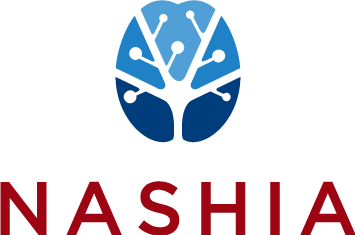Developing Brain Injury Resource Facilitation for Acquired Brain Injury: Indications and Unmet Needs
Members of the Service Access Subgroup of the 2023 Moody Galveston Brain Injury Conference (MGBIC) collaborated on a white paper featuring an overview of the current status of brain injury resource facilitation (RF) along with an analysis on the challenges and opportunities in brain injury RF for acquired brain injury. The paper includes practical policy recommendations for its implementation to the potential funders of brain injury RF programs at the national, state, and community levels. Funding for the MGBIC was provided by the Moody Endowment.
An Analysis of Intake Tools Used in Brain Injury Resource Facilitation Programs
NASHIA was tasked with identifying intake tools currently used across states for resource facilitation, comparing and reviewing common elements, and recommending best practices for state assessment tools related to an individual’s initiation and areas of need in a brain injury focused resource facilitation program.
NASHIA staff reviewed several historic documents that describe the origins, principles, and components of resource facilitation. A survey was created to collect information from all state government and partner programs currently providing some level of community-based supports. Information was gathered from a total of 33 states and from several state advocacy programs providing community-based service provision.
Brain Injury Resource Facilitation Programs in the United States
This map was developed to recognize where non-Medicaid brain injury resource facilitation services exist in the US. The provided services vary among states at this time, including but not limited to information & referral, assessments of needs and determination of goals, advocacy, support groups, classes and workshops, peer support, and community outreach. The service delivery also varies widely among states and is often defined by available funding (e.g., some states are only able to offer brain injury resource facilitation to individuals experiencing homelessness or domestic and sexual violence). This map does not include states with Medicaid Home and Community-Based Services waivers. It also does not specifically feature brain injury trust fund programs. The service offerings within states are subject to change and this map is updated annually. Please contact info@nashia.org for necessary updates and feedback.
Brain Injury Resource Facilitation: A Consensus of Best Practices
In 2023, the National Association of State Head Injury Administrators (NASHIA) was awarded a grant from the Moody Foundation to develop consensus related to the practice of resource facilitation. Elements for consideration included the name, core components, principles and approaches, evaluation and measurement, and data collection.
To accomplish these objectives, NASHIA implemented a Delphi Consensus process with brain injury leaders across the country.
Ball State University Economic Impact of Resource Facilitation: Workforce Re-entry Following Traumatic Brain Injury
This research note provides an estimate of the potential economic impact of Resource Facilitation (RF) on traumatic brain injury (TBI) patients in Indiana.
Resource Facilitation Survey Results, 2009
The TBI Lead Agencies of the 50 States, five Territories and the District of Columbia were invited to participate in a voluntary survey on resource facilitation for individuals with traumatic brain injury (TBI) and family members.
The goal of the survey was to have a “snapshot” of resource facilitation services across the country. To frame this snapshot, eight overarching questions were developed that formed the premise for the subsequent survey instrument.
Forty eight (48) out of 57 potential States/Territories responded to the survey. This “Survey Findings” document reflects the responses of 40 States who indicated they provide resource facilitation for individuals with brain injury and family members.






